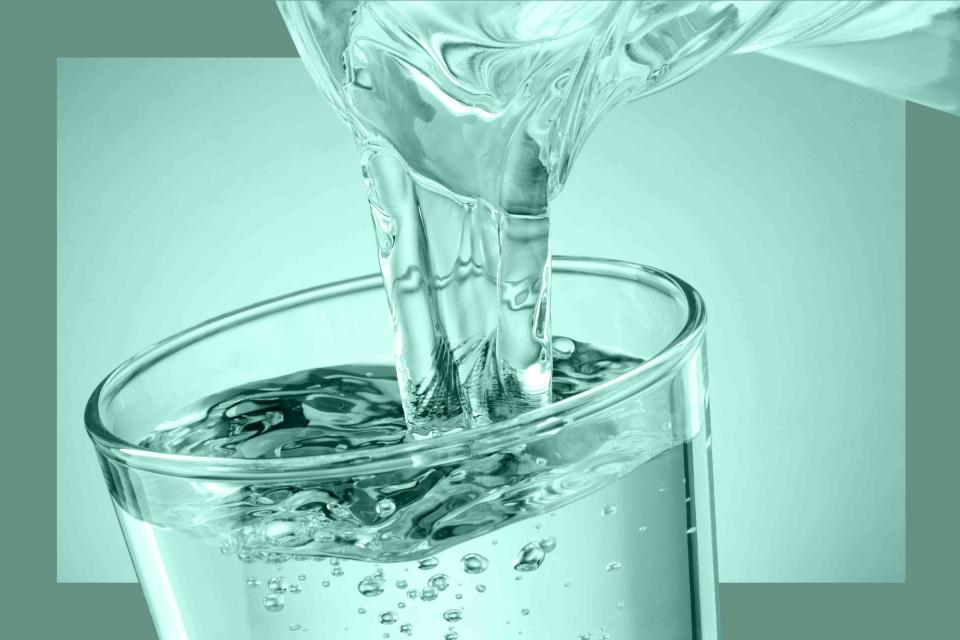Sparkling Water vs. Mineral Water: What's the Difference?
Still or sparkling doesn't begin to cover the nuances in the water aisle of your grocery store.

Getty
I’ll never forget the humbling experience of chugging a glass of Vichy Catalan at a work dinner years ago. I was taken off guard by the earthy, saline flavor, but held my composure together for long enough to quietly ask my neighbor about what was in the water I had just drank.
Vichy Catalan, I quickly learned, isn’t your run-of-the-mill seltzer. It’s also not just sparkling water. Sourced from a thermal spring in Caldes de Malavella in Spain, I’ve come to realize that folks either love it or…don’t, and more importantly, it falls into the category of mineral water.
If you’ve ever wondered what the technical and flavor differences between mineral water and sparkling water are — as well as where seltzer, club soda, and tonic water fall on that spectrum — read on.
What is mineral water?
Mineral water contains natural minerals such as calcium, magnesium, potassium, and sodium that come from its source. “The specific mineral composition [of water] can greatly affect its taste and health benefits,” says Julien Callela, vice president of beverage for Wish You Were Here Group, which includes New York City restaurants like Dudley’s and Little Ruby’s Cafe.
Topo Chico, for example, is sourced exclusively from a spring in the Topo Chico Mountain Region in Monterrey, Mexico; San Pellegrino, another popular mineral water you’ve likely come across at restaurants and grocery stores, hails from the Italian Alps.
"The mild complexity and salinity [of sparkling mineral water] can help balance flavors of alcohol or citrus in a drink," says Eva Sutter, beverage director of Bambino, a casual pizza joint in Austin. "It can even help the base spirit seem smoother or sweeter."
It’s worth noting that not all mineral water is naturally carbonated, but most have bubbles due to added carbonation. From a flavor perspective, mineral waters that are high in calcium or magnesium might taste slightly sweet. High sodium content (as is the case in Vichy Catalan) can make mineral water taste salty. “Mineral water is often enjoyed for its perceived purity and electrolyte content,” says Marek Trocha, bartender at Artesano in New York City.
Related: We Tasted As Many Sparkling Waters As We Could Find — Here Are the 4 Best
What is sparkling water?
Sparkling water is water that has been infused with carbon dioxide gas under pressure, a process that creates, you guessed it, carbonation. Seltzer and sparkling water are often used interchangeably, and while there’s a fair bit of debate as to whether or not doing so is technically correct, most plain seltzers and sparkling waters are extremely similar from a flavor perspective.
“Lovers of sparkling water enjoy the refreshing carbonation and fizziness that it brings,” says Trocha. “The bubbles can provide a satisfying sensation and a sense of lightness, making it a popular choice for those who want an alternative to sugary sodas or alcoholic beverages. Individuals who enjoy the carbonation and effervescence of sparkling water may prefer it for its lively mouthfeel and ability to cleanse the palate.”
Related: This Easy Non-Alcoholic Drink Will Make Your January Blues Disappear
What pairs better with food, mineral water or sparkling water?
Both mineral water and sparkling water can pair well with food. “The minerals in mineral water can enhance the flavors of dishes with bold or complex flavors,” says Trocha. “For example, mineral water can be a good match for rich and savory dishes like steak or hearty stews, as it can help cleanse the palate and balance out the richness of the food…meanwhile, the carbonation in sparkling water can help cut through oily or fatty foods, such as fried dishes or creamy sauces, providing a contrast in texture and flavor. Additionally, the bubbles can create a palate-cleansing effect that can be especially beneficial when enjoying a multi-course meal.”
Callela explains that mineral water with a high calcium and magnesium content might pair well with light meals like salads or fish, and add a refreshing touch without overpowering the flavors.
Ultimately, choosing between mineral water and sparkling water comes down to personal preference. But next time you’re at dinner and someone asks whether you’d prefer still or sparkling (especially in the U.S.) it’s safe to assume they’re referring to sparkling water. And on the off chance that there’s mineral water on offer, now you’ll know exactly what to expect.
For more Food & Wine news, make sure to sign up for our newsletter!
Read the original article on Food & Wine.

